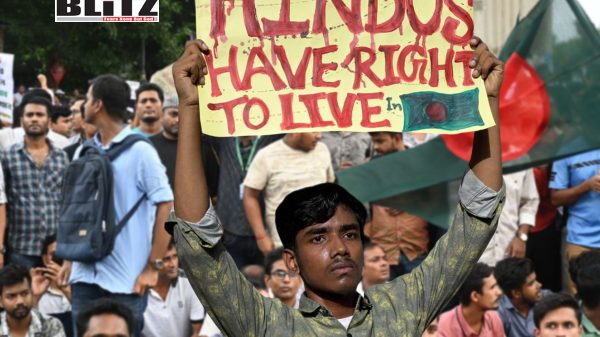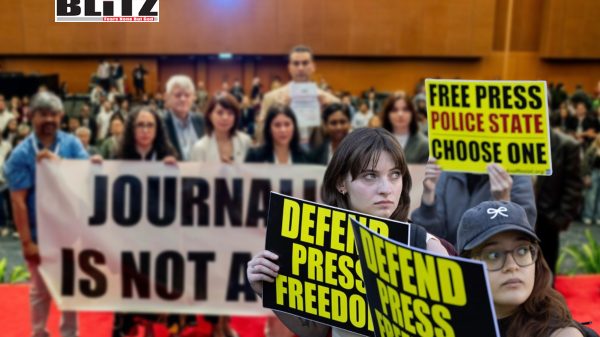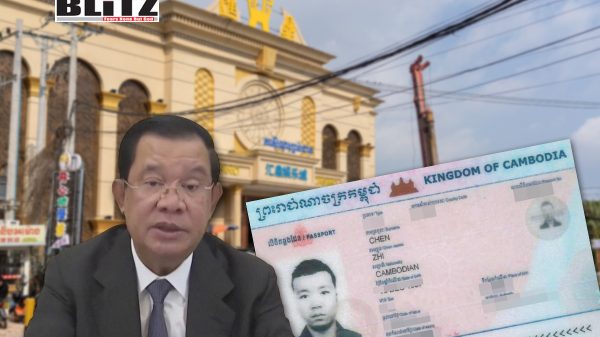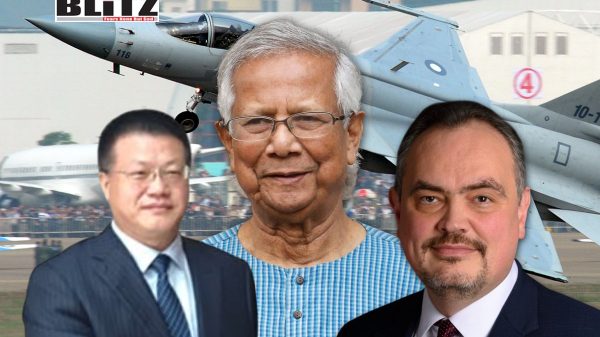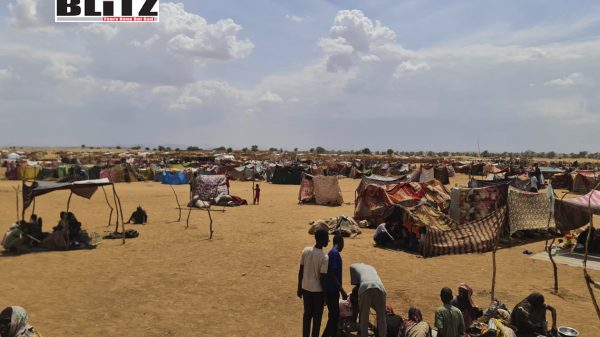Yunus regime’s hidden pogrom in Bangladesh: Gopalganj district turns into a killing field of Hindus under Islamist rule
- Update Time : Sunday, July 27, 2025

Following the July 16 Gopalganj Massacre – where innocent Hindus and local civilians were brutally killed by the Bangladesh Army – photos of the carnage quickly went viral on social media. In the aftermath, and under the cover of a continued curfew, the army and law enforcement agencies launched door-to-door raids across the region. These operations resulted in the arrest and, in many cases, the alleged abduction of men, women, and even minors. Shockingly, not a single human rights organization – including the United Nations – has spoken out against these crimes against humanity.
This silence is not without reason. UN Secretary-General António Guterres and Volker Türk, the UN High Commissioner for Human Rights, have both played the role of silent collaborators in the jihadist coup that took place in Bangladesh last year. This coup was orchestrated and supported by former US President Barack Obama, Bill and Hillary Clinton, George and Alexander Soros, the US Deep State, and Pakistan’s Inter-Services Intelligence (ISI).
Adding to the concern, the Office of the United Nations High Commissioner for Human Rights (OHCHR) recently signed an agreement with the Yunus regime to establish a permanent office in Bangladesh. In my view, this is the first step toward establishing a so-called “humanitarian corridor” that will serve as a military passage linking Bangladesh to Myanmar’s Arakan State – an area long plagued by extremist insurgencies. The OHCHR has previously been accused of enabling jihadist and terrorist groups in other parts of the world, and this development must be seen in that broader context.
Since July 16, over 1.3 million residents of Gopalganj – a district in southern Bangladesh – have been living under extreme fear and uncertainty. What began as a politically motivated provocation has now escalated into a full-blown campaign of state terror. Security forces, including members of the Bangladesh Army, have conducted sweeping raids throughout the district. Dozens of homes have been stormed, and many civilians – men, women, and children – have reportedly been detained or abducted on baseless allegations of affiliation with the Awami League, the country’s oldest and largest political party, which has now been arbitrarily banned by the ruling Islamist-jihadist regime led by Muhammad Yunus.
These horrifying actions have thrown the entire district into chaos. Since the evening of July 16 – now remembered as a Black Day in Bangladesh’s modern history – an indefinite curfew has been enforced. Gopalganj has effectively become a militarized zone. Beneath the surface lies a darker political agenda: to pave the way for the rise of the National Citizen Party (NCP), an unregistered and deeply unpopular political outfit known locally as the “King’s Party”. This group enjoys direct patronage from Muhammad Yunus and his radical Islamist allies.
To intensify the fear and further marginalize Gopalganj’s population, jihadist networks aligned with the Yunus regime have even declared intentions to rename the district with an “Islamic” name – an effort to erase its deep-rooted cultural and religious heritage. But why this particular hatred for Gopalganj?
Historically, Gopalganj has been a bastion of Hindu and Bengali heritage. In 1800, Babu Preetoram Marh, zamindar of Janbazar in Kolkata, purchased Makimpur Pargana – now part of Gopalganj – for 19,000 takas. His son, Babu Rajachandra Das, married the legendary Rani Rasmoni in 1804. After Rajachandra’s death, Rani Rasmoni became the administrator of the estate and emerged as a towering figure in Bengal’s cultural and spiritual renaissance. The name “Gopalganj” itself is derived from Nabo Gopal, Rani Rasmoni’s grandson.
Even earlier, in ancient and medieval times, Kotalipara – part of present-day Gopalganj – was the capital of the Gangaridai Dynasty around 300 BC. It remained under Hindu rule through the Sultanate and Mughal periods, symbolizing centuries of pluralistic and tolerant tradition.
Today, this heritage is under direct threat. Bangladesh is witnessing an orchestrated campaign of cultural erasure, ethnic cleansing, and historical revisionism. The Yunus regime is pursuing a calculated strategy to eliminate all symbols of national unity and religious coexistence.
Now, in the final stage of this diabolical scheme, Islamofascist Yunus and his cronies are reportedly planning the total expulsion – or worse, extermination – of Hindus and secular-minded individuals from Gopalganj. Their ultimate goal is to bring the region under the ideological banner of Sharia, or potentially turn it into a base for global jihadist networks like ISIS or Al Qaeda.
Instead of investigating the brutal killing of civilians by state forces, the regime has swiftly formed a so-called “judicial commission” – not to identify the perpetrators of the massacre, but to find out who was behind the alleged “attack” on a rally organized by the NCP. It is worth noting that NCP remains an unregistered political entity enjoying the unconstitutional favor of Yunus and his Islamist regime.
Once this nefarious blueprint is executed, the consequences will be catastrophic. A significant portion of Gopalganj’s 1.3 million residents – most of whom are Hindus—could face judicial executions, imprisonment, or forced migration to India. This mirrors the playbook of Adolf Hitler’s “Final Solution”.
If this plan succeeds in Gopalganj, it will be expanded to other parts of Bangladesh, turning the nation into a Hindu-free Islamic state governed by extremist ideology.
The unfolding humanitarian catastrophe in Gopalganj must serve as a wake-up call for the international community. Silence is complicity. Human rights groups, global media, and UN bodies must urgently break their indifference and investigate the gross violations being perpetrated by the Yunus regime and its Islamist collaborators. The systematic targeting of Hindus and secular Bangladeshis – under military curfew, arbitrary detention, abduction, and extrajudicial killings – constitutes nothing less than a slow-motion genocide. If the world fails to act now, Gopalganj may soon become a tragic symbol of global neglect, akin to Srebrenica or Rwanda. It is time to raise alarm, demand accountability, and stop the march of extremism before it consumes the very soul of Bangladesh.







